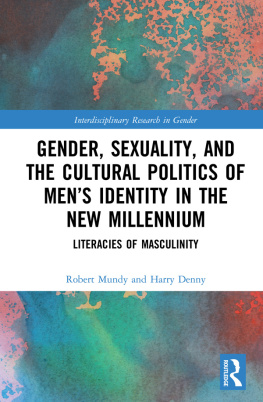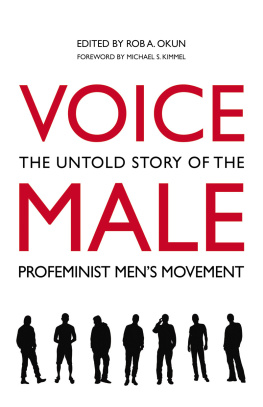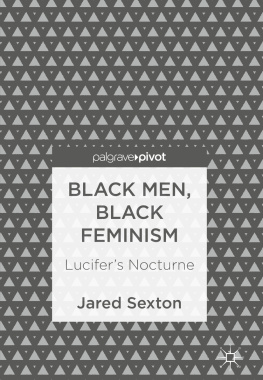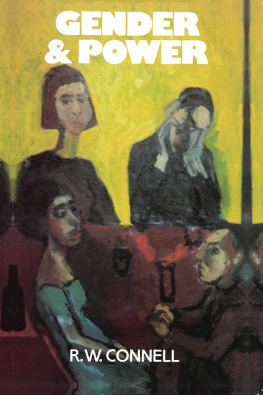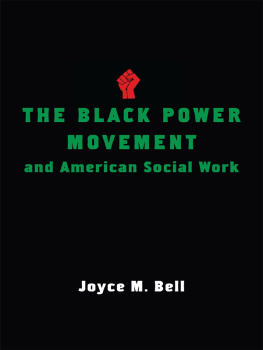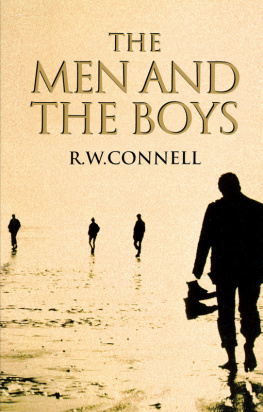
CHANGING MEN, TRANSFORMING CULTURE
THE YALE CULTURAL SOCIOLOGY SERIES
Jeffrey C. Alexander and Ron Eyerman, Series Editors
PUBLISHED
Triumph and Trauma, by Bernhard Giesen (2004)
Myth, Meaning, and Performance: Toward a New Cultural Sociology of the Arts, edited by Ron Eyerman and Lisa McCormick (2006)
American Society: A Theory of Societal Community, by Talcott Parsons, edited and introduced
by Giuseppe Sciortino (2007)
The Easternization of the West, by Colin Campbell (2007)
Culture, Society, and Democracy: The Interpretive Approach, edited by Isaac Reed and Jeffrey C. Alexander (2007)
Changing Men, Transforming Culture: Inside the Mens Movement, by Eric Magnuson (2007)
Do We Need Religion? On the Experience of Self-Transcendence, by Hans Joas (2007)
A Contemporary Introduction to Sociology: Culture and Society in Transition, by Jeffrey C. Alexander and Kenneth Thompson (2008)
FORTHCOMING
Making Los Angeles: How People Create Place Out of Ordinary Urban Space, by Christopher D. Campbell
Jihadi Terrorism in the Modern World, by Farhad Khosrokhavar
Setting the Stage for a New South Africa: A Cultural Approach to the Truth and Reconciliation Commission, by Tanya Goodman
Meaning and Method: The Cultural Approach to Sociology, edited by Isaac Reed and Jeffrey C. Alexander
CHANGING MEN, TRANSFORMING CULTURE
INSIDE THE MENS MOVEMENT
Eric Magnuson
First published 2007 by Paradigm Publishers
Published 2016 by Routledge
2 Park Square, Milton Park, Abingdon, Oxon OX14 4RN
711 Third Avenue, New York, NY 10017, USA
Routledge is an imprint of the Taylor & Francis Group, an informa business
Copyright 2007 Eric Magnuson
All rights reserved. No part of this book may be reprinted or reproduced or utilised in any form or by any electronic, mechanical, or other means, now known or hereafter invented, including photocopying and recording, or in any information storage or retrieval system, without permission in writing from the publishers.
Notice:
Product or corporate names may be trademarks or registered trademarks, and are used only for identification and explanation without intent to infringe.
Library of Congress Cataloging-in-Publication Data
Magnuson, Eric Paul, 1969
Changing men, transforming culture : inside the mens movement / Eric Magnuson.
p. cm. (Yale cultural sociology series)
Includes bibliographical references and index.
978-1-59451-394-7 (hc)
978-1-59451-395-4 (pbk)
1. Mens movementUnited States. 2. MasculinityUnited States. I. Title.
HQ1090.3.M233 2007
305.310973dc22
2006035796
Designed and Typeset by Straight Creek Bookmakers.
ISBN 13: 978-1-59451-394-7 (hbk)
ISBN 13: 978-1-59451-395-4 (pbk)
To my mother, Sharon Magnuson, whose courage and ceaseless efforts as a single mother made this possible
Contents
The mythopoetic mens movement elicits a wide array of responses, ranging from surprise to knowing smirks, from fascination to disdain, and from enthusiastic support to bitter opposition. Images arise of men drumming in the woods, getting naked and jumping over campfires, and baring their souls as they cry amongst their fellow men. A number of years ago, I decided to look deeper into this strange and unique phenomenon. I sought to further develop contemporary cultural sociology and apply it to this curious social movement. This study is the result of that inquiry.
In the pages that follow, I examine the social construction of cultural discourse in the mythopoetic mens movement. Using ethnographic methods, this study is based on research spanning eight years of participant observation within the movement. Examining the ideological dynamics of the movement, the work analyzes the construction and negotiation of cultural discourse concerning masculinity, gender, and other perceived dominant ideologies of U.S. society. Using the concept of hegemony in a fully cultural way, the analysis examines the ways in which, in face-to-face interaction, the men of the movement develop structured moral understandings of a hegemonic masculinity and a hegemonic culture and, simultaneously, a counterhegemonic masculinity and counterhegemonic culture.
Theoretically, the study draws upon and advances contemporary cultural work in sociology to understand the structured systems of meaning constructed by the members of this movement. Developing this approach further, the analysis uses ethnographic data to forward understandings more sensitive to the microlevel dynamics of interaction, individual agency, and contingency. Further, issues of power and hegemony are included in ways that deepen the theoretical perspective while at the same time maintaining the fully cultural nature of the approach.
The members of the mythopoetic mens movement explicitly see themselves as reacting to a dominant form of gender identity they view as having limited and damaged both men and women. Their personal and political project is the formulation of a counterhegemonic masculinity. Overall, this is an organized, sustained identity creation movement. It is a seed movement, crystallizing new ideas about masculinity and creating new possibilities for the culture at large.
The men of the mythopoetic mens movement are also actively involved in the construction of critical interpretations of what they see as a dominant culture that stresses the importance of the work ethic, professional success, and material achievement. These men actively create alternative perspectives on the material sphere that decrease those priorities and increase the priorities of emotional growth, fathering, being a good partner, and being fully involved in family life. Related to this, they increase the importance of love, creativity, and spiritual pursuits. It is a distinct cultural shift they propose, one that has some potentially radical implications.
The mythopoetic mens movement has often been misunderstood in certain ways in both popular and academic circles. Many know little of the movement beyond the media caricatures of wild men beating drums in the woods and crying around bonfires. As this book will show, this is a gross stereotype that is shown to be false upon close empirical analysis.
A more subtle misunderstanding appears in many academic writings on the topic. Almost all scholarly work in the area has been based solely on analysis of the writings of popular texts that have inspired the movement (such as books by Robert Bly, Sam Keen, Michael Meade, and James Hillman). These writings have been easy to criticize as they are largely pop psychology and ungrounded creative mythology. They have an essentialist element as they call on men to rediscover some kind of innate masculinity that is seen as ahistorical, transcending time and place. The problem is that academic analysis almost always stops at that point. As a result, any work in this vein is not actually an empirical study of the movement itself. It cannot be determined what is going on within the movement without direct, firsthand research methods such as interviewing, participant observation, and/or surveying. Due to this methodological limitation, most previous work has missed many of the subtleties of the movement and instead tended to dismiss its participants as misinformed, conservative, and antifeminist. This book thus aims to supplement previous analysis and provide a more full understanding of the movement from the inside.


